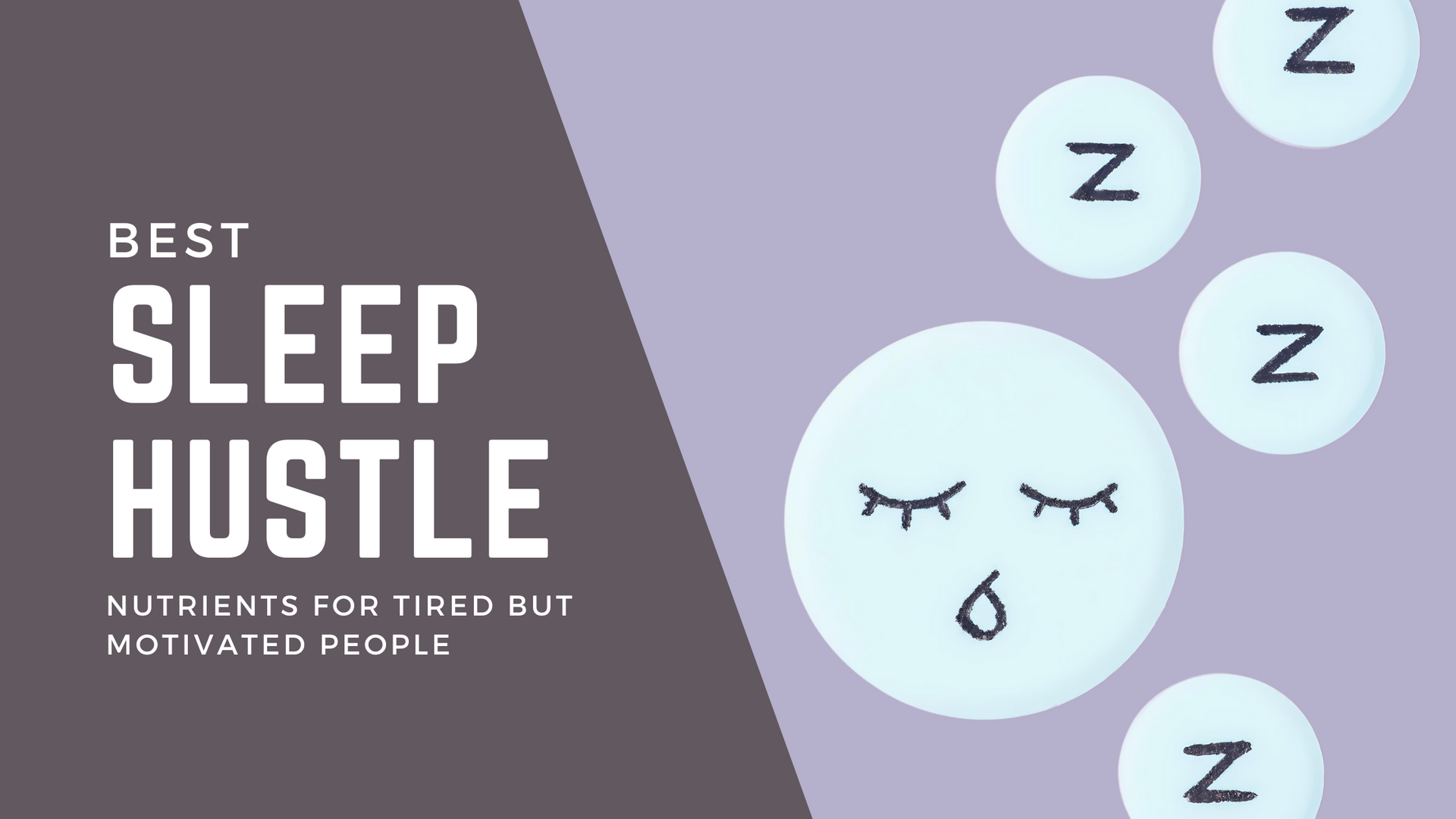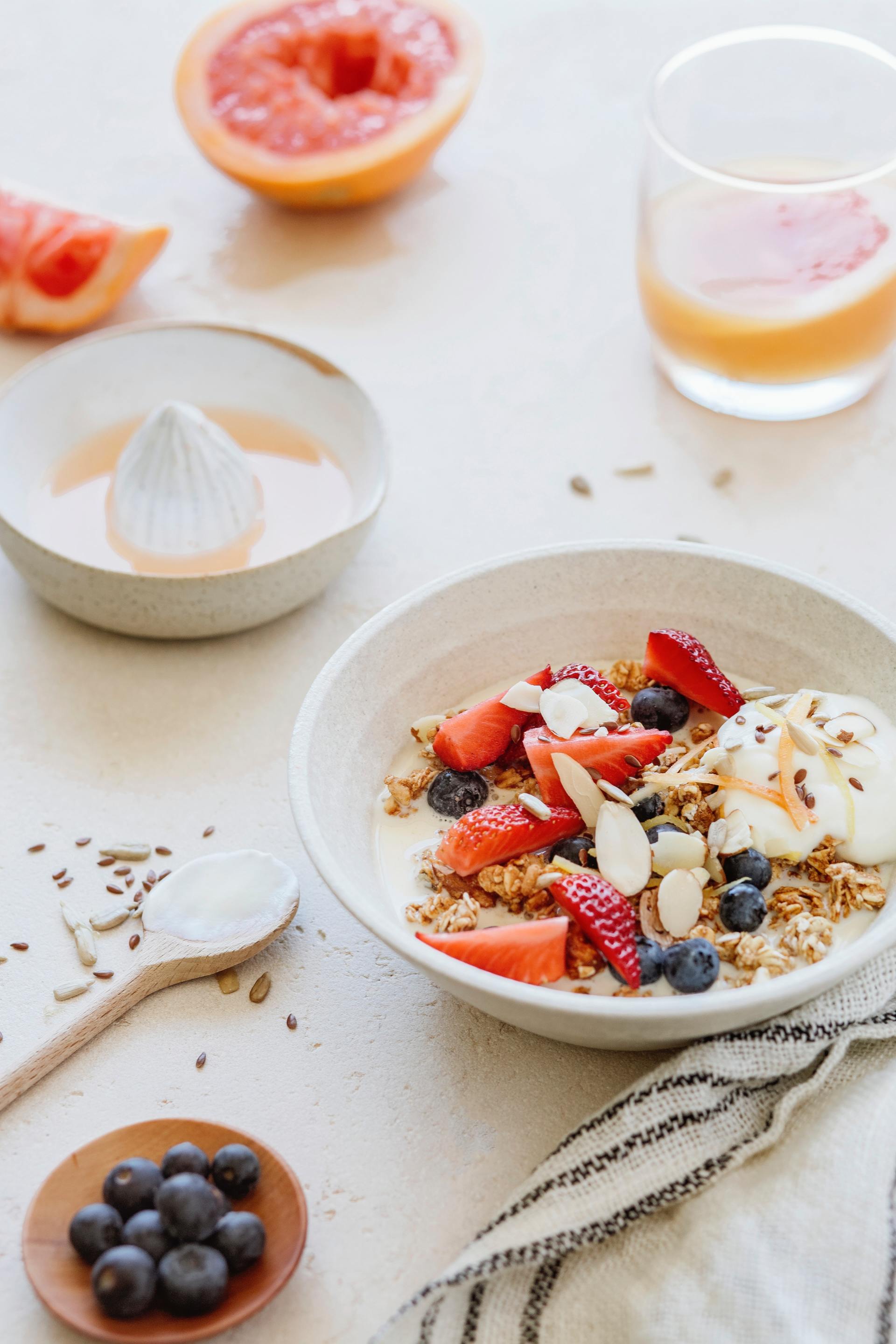In today's fast-paced world, getting quality sleep can feel like a distant dream. Tossing and turning, staring at the ceiling, and watching the clock can leave you feelin groggy and unrested. But did you know that what you eat can have a significantly impact on your sleep quality? Naturopathic medicine emphasizes the role of nutrition in promoting overall health, including restful sleep. Let's dive into the top nutrients for sleep and how you can easily add them to your diet. Remember, no food or food group is evil. I provide lots of options for various diets below. Also, if you would like healthy recipes and a meal plan to help you incorporate these nutrients into your diet, feel free to read to the end or
click here
to learn more!
Magnesium: The Relaxation Mineral
Magnesium is like a natural relaxant for your body. It helps calm the nervous system and relax muscles, setting the stage for deep, restful sleep. Plus, it supports GABA (gamma-aminobutyric acid), a neurotransmitter that promotes relaxation.
How to get more magnesium:
- Leafy greens: Spinach, kale, and Swiss chard are packed with magnesium. Add them to salads, smoothies or as a side dish.
- Nuts and seeds: Almonds, pumpkin seeds, and sunflower seeds are magnesium-rich. Snack on a handful or sprinkle them over your meals.
- Whole grains: Brown rice, quinoa, and whole wheat bread are great sources. Choose these over refined grains.
- Fish: Fatty fish like salmon and mackerel also provide magnesium and other sleep-friendly nutrients.
Melatonin: The Sleep Hormone
Melatonin, often called the sleep hormone, regulates your sleep wake cycle. It's produced by your pineal gland in response to darkness, signaling to your body that it's time to sleep.
How to Boost Melatonin Naturally:
- Tart Cherries: Tart cherry juice and dried tart cherries are natural sources. Enjoy a small glass of tart cherry juice in the evening.
- Grapes:
The skin of grapes contains melatonin. Snack on a handful of grapes before bed.
- Tomatoes: Add tomatoes to your salads, sandwiches, or sauces.
- Walnuts:
These nuts offer melatonin and healthy fats. Have a few walnuts as a bedtime snack.
Tryptophan: The Serotonin Precursor
Tryptophan is an amino acid that your body converts into serotonin, which then turns into melatonin. This helps regulate your sleep patterns and mood.
How to get more tryptophan:
- Turkey and Chicken:
These are well-known sources of tryptophan. Include lean poultry in your dinners.
- Milk and Dairy: A warm glass of milk before bed can be soothing and provides tryptophan.
- Nuts and Seeds:
Pumpkin seeds, sesame seeds, and almonds are loaded with tryptophan.
- Legumes: Beans, lentils, and chickpeas are excellent plant-based sources. Add them to soups, stews, and salads.
Vitamin B6: The Enabler
Vitamin B6 is key for converting tryptophan to serotonin and melatonin, making it crucial for your sleep-wake cycle.
How to get more vitamin B6:
- Chickpeas:
Use these versatile legumes in salads, stews and hummus.
- Tuna and Salmon: These fish are rich in B6 and also offer omega-3 fatty acids.
- Bananas: Convenient and tasty, bananas are a great source of B6. Enjoy them as a snack or add to smoothies.
- Chicken and Turkey:
Lean poultry provides a good amount of B6. Include these in your regular meals.
Calcium: The Sleep Supporter
Calcium helps your brain use tryptophan to make melatonin, supporting the sleep process.
How to Get More Calcium:
- Dairy Products: Milk, cheese, and yogurt are classic sources of calcium. Try a small serving of yogurt as an evening snack.
- Leafy Greens: Kale, collard greens, and broccoli are rich in calcium. Add these to your meals regularly.
- Almonds:
A handful of almonds provides calcium and magnesium.
- Tofu:
This versatile soy product can be added to stir-fries, salads, and soups.
Vitamin D
Vitamin D is associated with better sleep quality. While your skin makes it when exposed to sunlight, dietary sources are also important.
How to Get More Vitamin D:
- Fatty Fish: Salmon, mackerel, and sardines are excellent sources.
- Fortified Dairy Products: Milk and yogurt often have added Vitamin D.
- Egg Yolks: Include eggs in your breakfast or meals.
- Mushrooms:
Certain mushrooms, like maitake and shiitake provide Vitamin D, especially when exposed to sunlight.
Omega-3 Fatty Acids: The Brain Boosters
Omega-3 fatty acids, particularly DHA, help with sleep by influencing melatonin production.
How to Get More Omega-3s:
- Fatty Fish: Regularly include Salmon, mackerel, and sardines in your diet.
- Flaxseeds: Add ground flaxseeds to your smoothies, oatmeal, or salads.
- Chia Seeds: Use these in puddings, smoothies, or sprinkle on yogurt.
- Walnuts: A convenient snack that provides omega-3s and melatonin.
Potassium: The Balancer
Potassium works with sodium to help regulate fluid balance and muscle function, impacting sleep quality.
How to Get More Potassium:
- Bananas: An easy and Nutritious source of potassium.
- Sweet potatoes: Roast them, mash them, or use them in soups.
- Avocados: Add them to salads, toast or smoothies.
- Spinach: Use fresh spinach in salads or cook it in various dishes.
Iron: The Literal Sleeper Mineral
Iron deficiency is linked to many conditions such as restless leg syndrome (RLS), for example, which can disrupt sleep. Consuming iron rich foods can help prevent these conditions.
How to Get More Iron
- Red Meat: Beef and lamb are rich in iron. Opt for lean cuts and include them in your meals.
- Spinach:
Spinach is rich in iron and calcium. Add it to smoothies, salads, or cooked dishes.
- Lentils: These legumes are an excellent plant-based source of iron. Use them in soups, stews, and salads.
- Quinoa: A versatile grain that can be used in salads, as a side dish, or in breakfast bowls.
Zinc: The Immune Supporter
Zinc helps regulate sleep and produce melatonin.
How to Get More Zinc:
- Oysters: One of the richest sources of zinc. Enjoy them as a special treat.
- Beef and Pork: These meats provide substantial amounts of zinc.
- Pumpkin seeds: Snack on these or add to salads and yogurt.
- Lentils: Incorporate lentils into your meals for a plant-based zinc boost.
Conclusion: Nourishing your way to better rest.
Incorporating these sleep-supportive nutrients into your diet can make a huge difference in your sleep quality. Remember, a balanced diet that includes a variety of nutrient-rich foods is key. By focusing on these nutrients, you'll not only support your sleep but also boost your overall health and well-being. So, next time you find yourself struggling to drift off, consider reaching for a nutrient-rich snack or meal to help set the stage for a restful night's sleep.
By paying attention to what you eat, you can harness the power of food to improve your sleep and, ultimately, your quality of life.
Rest well!
If you're feeling overwhelmed about how to start incorporating these sleep-boosting foods into your diet, I've got you covered! I've crafted a meal plan designed to help you effortlessly include all the essential nutrients discussed in this article.
With delicious recipes, easy-to-follow instructions, convenient grocery list, and a prep guide, you'll find it simple to nourish your body and improve your rest.
Click here to let me take the mental load and plan a week of meals for you!
Remember: This post in for informational purposes only and may not be the best fit for you and your personal situation. It shall not be construed as medical advice. The information and education provided here is not intended or implied to supplement or replace professional medical treatment, advice, and/or diagnosis. Always check with your own physician or medical professional before trying or implementing any information read here.








